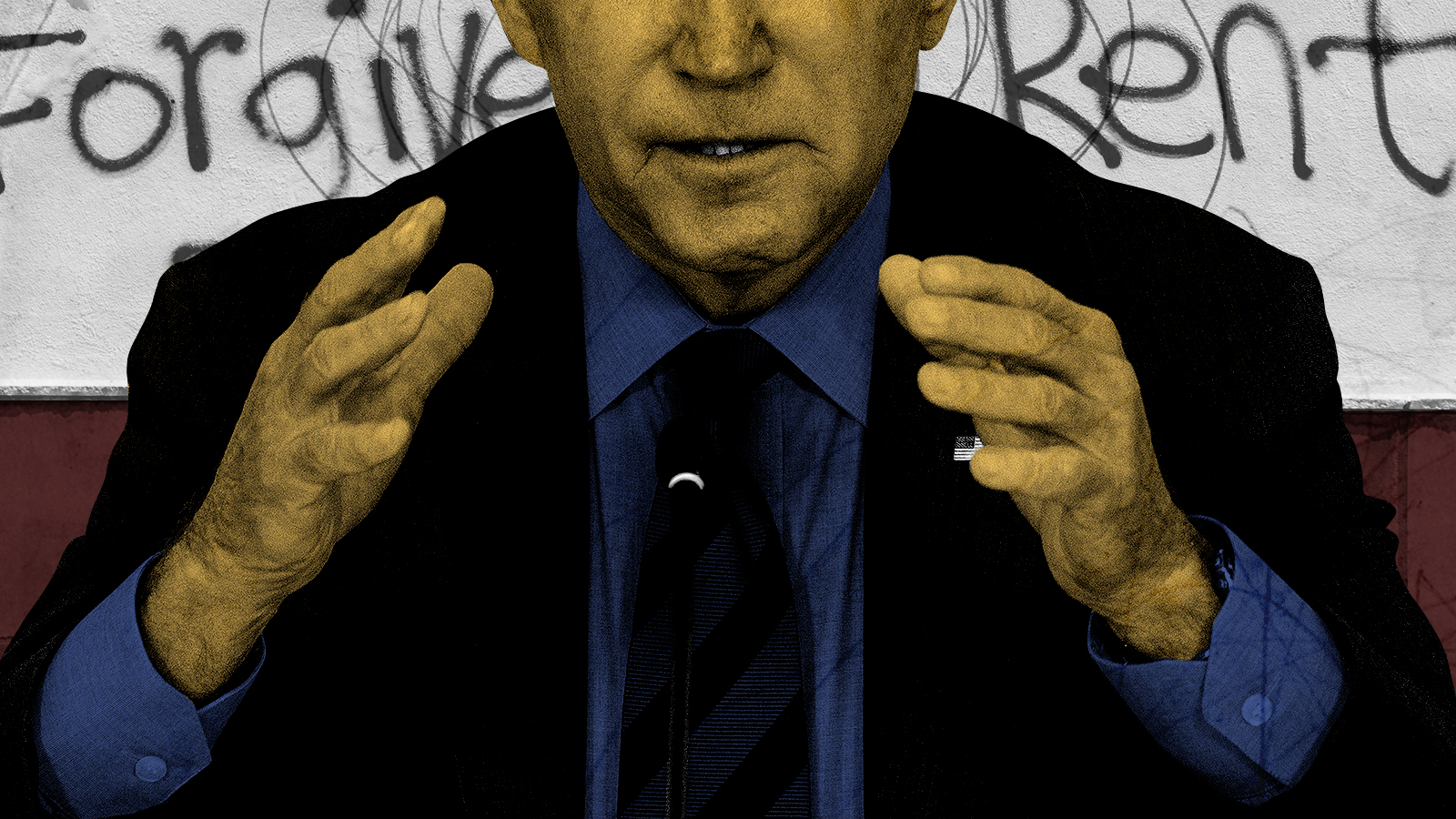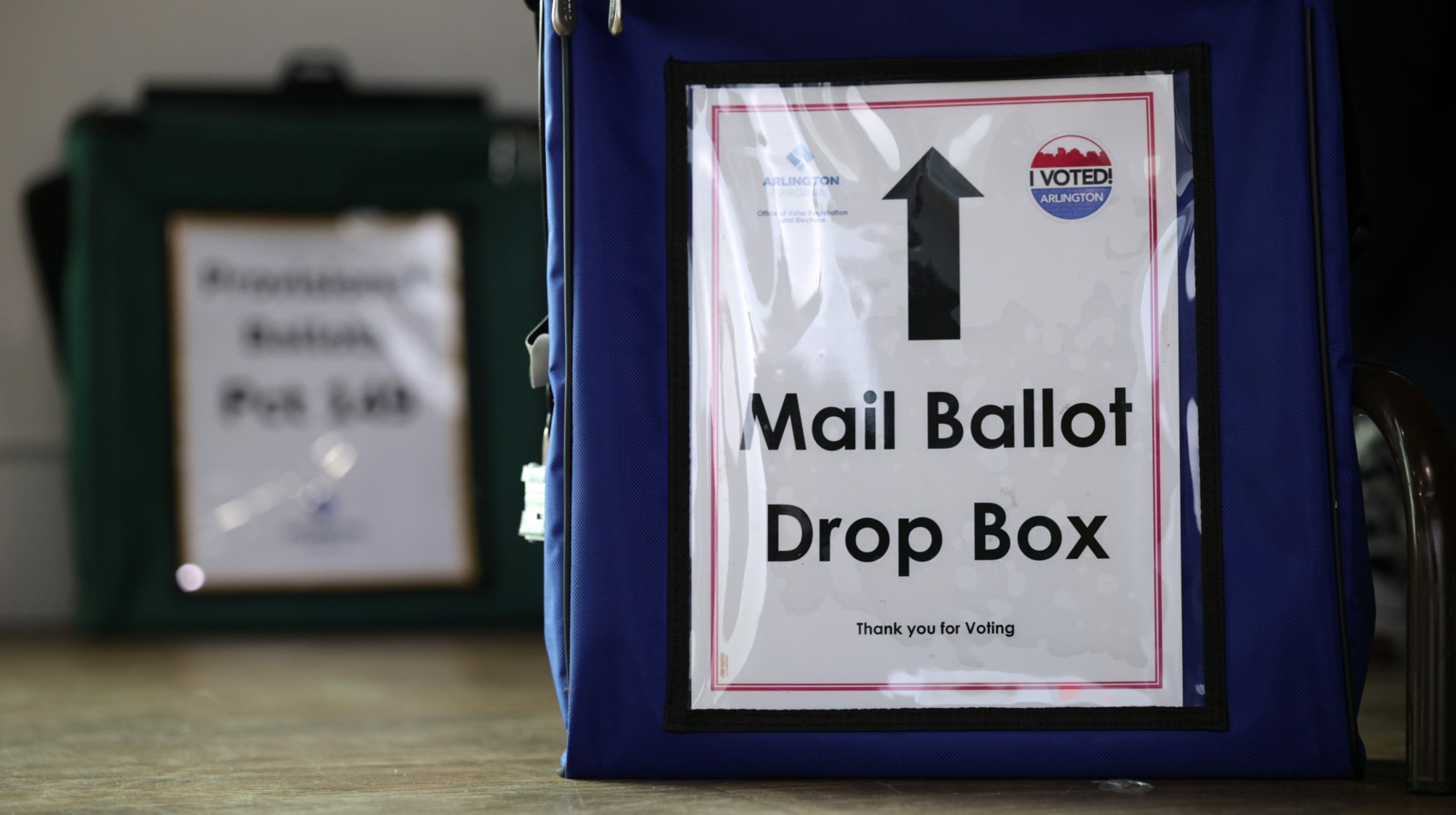Biden's lawless eviction moratorium will come back to haunt Democrats
Openly exploiting delays in our judicial system invites future presidents to do much worse


A free daily email with the biggest news stories of the day – and the best features from TheWeek.com
You are now subscribed
Your newsletter sign-up was successful
President Biden's decision to revive the federal eviction moratorium is bad policy. It helps renters at the expense of millions of small-scale landlords, most of whom own a single rental property and cannot absorb thousands of dollars of unpaid rent. Read the stories of these landlords — who are essentially small business owners and, in many cases, working-class immigrants — and it becomes obvious #CancelRent is not the simple demand of justice for the downtrodden it is often made out to be. Bankrupting small landlords out of the rental game won't mean no rent; it will mean the only landlords left are big corporations newly freed of independent competition.
Biden's call is likely bad politicking, too, as my colleague Jim Antle has argued. His attempt to please all constituencies may end up disappointing them all instead.
But beyond policy and politics, the worst part of Biden's choice is the precedent it sets. Asked on Tuesday whether his plan would "pass Supreme Court muster," Biden all but admitted he is knowingly violating the law — very possibly the Constitution itself. But, he said, legal challenge will be slow enough that the policy goal can be briefly accomplished before the extension is struck down in court:
The Week
Escape your echo chamber. Get the facts behind the news, plus analysis from multiple perspectives.

Sign up for The Week's Free Newsletters
From our morning news briefing to a weekly Good News Newsletter, get the best of The Week delivered directly to your inbox.
From our morning news briefing to a weekly Good News Newsletter, get the best of The Week delivered directly to your inbox.
The bulk of the constitutional scholarship says that it's not likely to pass constitutional muster. […] I don't know. There are a few scholars who say it will and others who say it's not likely to. But, at a minimum, by the time it gets litigated, it will probably give some additional time while we're getting that $45 billion [previously allocated as back rent to pay to landlords banned from evicting] out to people who are, in fact, behind in the rent and don't have the money. [President Biden, via Whitehouse.gov]
Willfully breaking the law and relying on judicial delay to get away with it is an awful approach to governance. It is lawlessness. And though presidential lawbreaking is hardly new — I'd be utterly unsurprised to learn past presidents discussed this very strategy behind closed doors — Biden's blatant, public announcement of intent to thus exploit our court system seems to be an innovation.
I reached out to constitutional law expert Ilya Shapiro, legal scholar Walter Olson, and law professor Ilya Somin to see if that impression was correct. All three struggled to suggest a comparably brazen example from U.S. history.
Shapiro identified a similar spirit in President Richard Nixon's infamous claim that "when the president does it, that means that it is not illegal" and in President Andrew Jackson's possibly apocryphal threat to ignore a Supreme Court ruling because the justices could not enforce it. Olson told me former President Barack "Obama pushed through legally dubious interpretations on [the immigration policy] DACA and [the Affordable Care Act, commonly called] ObamaCare, but stalling for time wasn't exactly the rationale," nor was there this open acknowledgement of illicit action.
Somin said he thinks "this has been done a number of times in previous administrations, including under [former President Donald] Trump," but he isn't "aware of any president actually saying in so many words — as Biden just did — that this is what he's doing." Somin did think of one presidential legal saga with a chronological element: a World War II espionage case, ex parte Quirin, in which President Franklin Delano Roosevelt rushed the execution of German saboteurs, who had been convicted by a military tribunal, so the men were dead before the Supreme Court issued its full opinion on the tribunal's legitimacy.
A free daily email with the biggest news stories of the day – and the best features from TheWeek.com
For all that case's controversy, however, FDR at least had a brief, per curiam opinion from the court authorizing him to move forward. Here, Biden neither has — nor, apparently, expects — any such thing. He's racing away from judicial censure, not toward judicial approval.
The risk in this precedent should be obvious even to those who support the immediate policy outcome. You may believe Biden is morally justified here, that he was, as a CNN analysis put it, left with "no choice" but to "make drastic moves ... even if he's not sure they're legal." So what happens when the president is not thus constrained by circumstance yet uses this strategy anyway? What happens when there's a different president, maybe from a different party? Let us not imagine the Republicans will evince any principle here. Democrats will come to regret this (provided they manage to remember they started it).
As a candidate, Biden promised to take "aggressive action" to "maintain the rule of law, and to bring integrity back to our justice system." Instead he's hit upon a novel way to degrade the rule of law and make our justice system a joke. Future presidents will copy this exploitation if Biden pulls it off. A president can deport a lot of people, or build a lot of border wall, or drop a lot of bombs, or take down a lot of websites, or send a lot of weapons to a lot of dictators, or expedite a lot of federal executions "by the time it gets litigated."
Is that the standard of governance we want? Is the pace of a jurist's pen enough defense against rule by one man's fiat?
Bonnie Kristian was a deputy editor and acting editor-in-chief of TheWeek.com. She is a columnist at Christianity Today and author of Untrustworthy: The Knowledge Crisis Breaking Our Brains, Polluting Our Politics, and Corrupting Christian Community (forthcoming 2022) and A Flexible Faith: Rethinking What It Means to Follow Jesus Today (2018). Her writing has also appeared at Time Magazine, CNN, USA Today, Newsweek, the Los Angeles Times, and The American Conservative, among other outlets.
-
 Antonia Romeo and Whitehall’s women problem
Antonia Romeo and Whitehall’s women problemThe Explainer Before her appointment as cabinet secretary, commentators said hostile briefings and vetting concerns were evidence of ‘sexist, misogynistic culture’ in No. 10
-
 Local elections 2026: where are they and who is expected to win?
Local elections 2026: where are they and who is expected to win?The Explainer Labour is braced for heavy losses and U-turn on postponing some council elections hasn’t helped the party’s prospects
-
 6 of the world’s most accessible destinations
6 of the world’s most accessible destinationsThe Week Recommends Experience all of Berlin, Singapore and Sydney
-
 Supreme Court upholds California gerrymander
Supreme Court upholds California gerrymanderSpeed Read The emergency docket order had no dissents from the court
-
 The ‘mad king’: has Trump finally lost it?
The ‘mad king’: has Trump finally lost it?Talking Point Rambling speeches, wind turbine obsession, and an ‘unhinged’ letter to Norway’s prime minister have caused concern whether the rest of his term is ‘sustainable’
-
 The billionaires’ wealth tax: a catastrophe for California?
The billionaires’ wealth tax: a catastrophe for California?Talking Point Peter Thiel and Larry Page preparing to change state residency
-
 How robust is the rule of law in the US?
How robust is the rule of law in the US?TODAY’S BIG QUESTION John Roberts says the Constitution is ‘unshaken,’ but tensions loom at the Supreme Court
-
 Bari Weiss’ ‘60 Minutes’ scandal is about more than one report
Bari Weiss’ ‘60 Minutes’ scandal is about more than one reportIN THE SPOTLIGHT By blocking an approved segment on a controversial prison holding US deportees in El Salvador, the editor-in-chief of CBS News has become the main story
-
 Memo signals Trump review of 233k refugees
Memo signals Trump review of 233k refugeesSpeed Read The memo also ordered all green card applications for the refugees to be halted
-
 The ‘Kavanaugh stop’
The ‘Kavanaugh stop’Feature Activists say a Supreme Court ruling has given federal agents a green light to racially profile Latinos
-
 Supreme Court to decide on mail-in ballot limits
Supreme Court to decide on mail-in ballot limitsSpeed Read The court will determine whether states can count mail-in ballots received after Election Day
